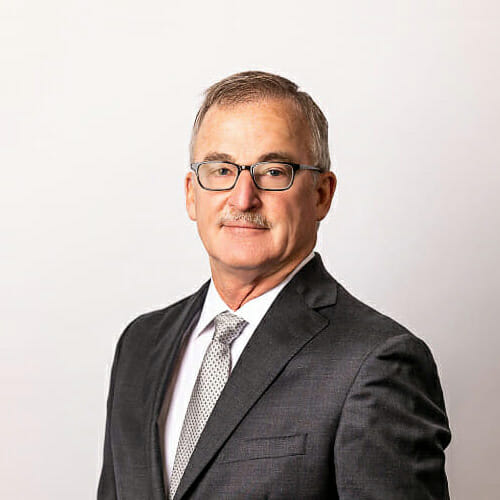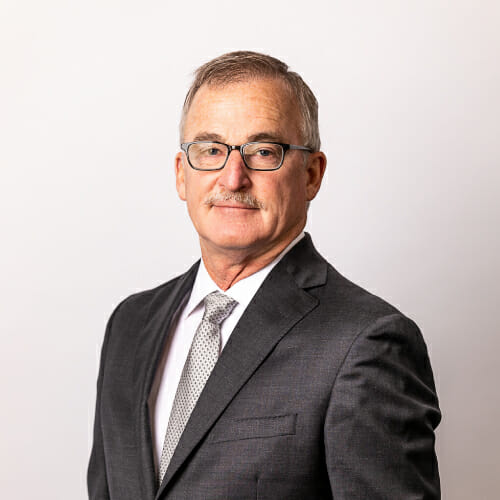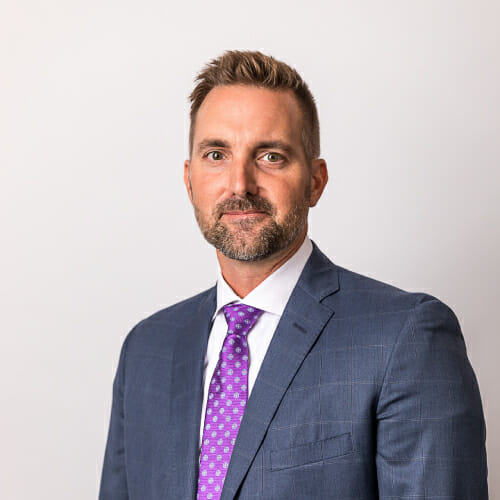$48.5
Million
Truck Accident Case
We took more than 60 depositions in five different states. Because of Stephenson’s tireless advocacy, shortly before the trial was to commence, the defendants settled the case for $48.5 million.
If you slip and fall while shopping in a store, fall over a loose railing at a ballgame, or are harmed by an intruder at a hotel, you may be entitled to a legal remedy through a premises liability lawsuit. Indiana premises liability law requires property owners to maintain safe environments, and the law can hold owners liable if they fail to do so.
Every premises liability case has the concept of “duty” at its core. Generally, duty means that a property owner is required to:
- Keep their property/building in a safe condition,
- Exhibit reasonable care to discover any dangerous conditions, and
- Repair, replace, post warnings, or cordon off any dangerous conditions that could cause harm.
Premises liability law in Indiana states that property owners are liable for any mishap, injuries, or death that occurs to an individual who is legally on their property if the harm was caused by unsafe conditions. The law also says that to prove negligence, a plaintiff must show that the property owner had knowledge of the unsafe conditions and failed to clean up/block off/remedy the hazardous conditions.
Property owners are required to fix any potentially dangerous situations on their property that they know about or should have known about. Whether the property be a store, hotel, bank, or university, these are some hazardous conditions that could exist:
- Wet or slippery flooring
- Loose carpeting
- Inadequate lighting
- Broken security cameras or alarms
- Lack of security altogether
- Malfunctioning elevators and escalators
- Broken door locks
- Rain, ice, or snow in parking lots or on floors
- Unsecured hazardous chemicals
- Cluttered aisles
- Poorly operating equipment
- Dogs that bite
- Dilapidated structures
These are just a few of the conditions that could be considered dangerous. Many others exist. A property owner does not necessarily know the exact minute a hazardous condition will arise (for example, the owner cannot anticipate that the escalator will break at noon), nor can an owner always fix something immediately. However, an owner is required to promptly mitigate the potential danger by blocking off an area, posting warning signs, setting up orange cones, or otherwise cordoning off an area to alert patrons to stay away. In our example above, if the escalator breaks and becomes dangerous, an owner cannot leave it that way for days unattended and allow unsuspecting shoppers to get hurt.
If you or a loved one has been injured or died while on a property that was unsafe, you should call our Indiana premises liability lawyers to find out about your legal rights. You may be entitled to financial compensation. Businesses and other venues have a responsibility to create a safe environment, and it can be catastrophic when property owners are negligent.
Best Premises Liability Attorneys
There are a lot of premises liability attorneys out there, but all attorneys are not created equal. Generally, the better your attorney, the better your chances for a positive outcome. The Indiana premises liability lawyers at Stephenson Rife are among the best and the brightest. We have successfully handled hundreds of personal injury cases, and we fight aggressively to get the justice our clients deserve. We take every case personally, and we treat each client with respect and compassion. To learn more about our legal team, read our attorney bios here. You can also read our outstanding client testimonials.
Types of Accidents Involving Premises Liability
There are several ways in which a person can be injured on a premises. Whether it’s a concussion or a life-threatening injury, each accident must be taken seriously, and a victim should seek medical attention right away. Some types of accidents include:
Slip & Fall
A slip and fall accident occurs when a visitor slips on a wet floor, trips over debris, falls down the stairs, or otherwise loses their balance and gets injured due to dangerous conditions at a property. Slip and falls can happen at hotel pools, in grocery aisles, on icy parking lots, and in a whole host of other places.
Injured by Equipment
A visitor can get injured when on-site equipment malfunctions or breaks completely. For example, these can include elevator and escalator injuries, faulty washers or dryers at laundromats, defective equipment at hair salons, broken department store displays, malfunctioning treadmills at gyms, or any other types of equipment that pose a danger.
Physical Altercation or Harm
A visitor to a property can be hurt when another patron or intruder injures them because of failed or inadequate security precautions. For example, if a hotel’s security cameras and door locks have been broken for months and the owner does not repair them, then the owner is likely liable if an intruder breaks in and harms you.
Loose dog causes motorcycle accident.
Stephenson Rife obtained a settlement of $1 million in a case involving a traumatic brain injury to our client. The matter involved an unrestrained dog that ran into the road, causing our client to lose control and crash his motorcycle. Stephenson Rife uncovered evidence that the dog had a prior history of leaving the property and straying onto the roadway. The settlement amount was the full insurance policy limit covering the defendant homeowner. The resolution of this case was achieved in fewer than 6 months following the crash.
Potential Locations for Premises Liability
Many establishments and buildings can give rise to a premises liability claim. Whether large or small, public or privately owned, these properties have a responsibility to provide a safe environment for visitors and customers. Some of these locations include:
- Stores
- Hotels & Resorts
- Malls
- Banks
- Universities
- Concert Venues
- Sports Arenas
- Amusement Parks
- Museums
- Restaurants & Bars
- Salons
- Libraries
- Gyms
To be successful in a premises liability claim, a plaintiff must be able to show the following:
- The person who caused the injury owned, leased, or occupied the property,
- This person was negligent in the use/operation of the property,
- The plaintiff was harmed, and
- The defendant’s carelessness or negligence contributed to or caused the harm
If you have been injured and are unsure whether the location gives rise to a premises liability claim, speak to a skilled and experienced premises liability law firm to find out. Contact Stephenson Rife for a free initial consultation at (317) 680-2501.
Definition of Terms in Premises Liability
Premises liability lawyers will tell you that a property owner’s standard of care generally depends on the status of the individual entering the property/land. There are three types: invitees, licensees, and trespassers.
- Invitees. An invitee is a person who enters a property for the financial benefit of the property owner (for example, a shopper at a store), a person who enters a property that is typically open to the public at large (for example, a museum), or who is an invited social guest of the property owner. To invitees, an owner has the duty of reasonable care in keeping the premises maintained and safe, and the owner must identify and repair dangerous conditions and post warnings about dangers.
- Licensees. A licensee is any person who has the property owner’s express or implied permission to enter the property and is entering the property for their own purposes. Such people could be a salesman, a photographer, or a pharmaceutical representative at a doctor’s office. The owner is required to warn a licensee of any dangerous conditions that the owner knows about and that the licensee is unaware of.
- Trespassers. A trespasser is a person who is not authorized to enter or remain on property that belongs to someone else. The property owner owes no duty to trespassers except to refrain from willfully harming them or increasing the likelihood that they will be harmed. If the trespasser is a child, the situation is slightly different because children are not expected to fully understand dangers. Children who trespass are covered by the attractive nuisance doctrine.
Statute of Limitations for Premises Liability Cases in Indiana
The statute of limitations on premises liability cases, just like all personal injury cases, is two years from the date the injury occurred. Indiana Code section 34-11-2-4 says: “An action for: (1) injury to person or character; [or for] (2) injury to personal property…must be commenced within two (2) years after the cause of action accrues.” So if you or a loved one was injured, take action and call an Indianapolis premises liability attorney right away. If you wait, you may miss your opportunity and will have no recourse.
Elements Needed to Establish Negligence
When putting together a premises liability claim, laws are clear about how to prove negligence in an injury case. You must prove four elements:
- Duty
- Breach
- Causation
- Damages
Duty
The defendant owes the plaintiff a legal “duty of care.” For example, in a slip-and-fall case, a store owner owes a legal duty to clean up spills promptly after they happen and keep aisles clear of clutter. Otherwise, customers could fall and get hurt.
Breach
A plaintiff must show that the defendant breached this duty by doing, or failing to do, something that a reasonably prudent person would have done under similar circumstances. The reasonable person standard is central to negligence cases and and is designed to establish the degree of caution and concern a defendant exhibited regarding the safety of others.
Causation
It’s not enough for a defendant to be acting negligently, but you must show that their negligence caused or contributed to the accident that resulted in your injury. Also, the defendant must reasonably foresee that their behavior could cause you injury.
Damages
Damages means that a plaintiff can be compensated monetarily for their injuries and the resulting losses they suffered. For example, damages could be awarded for the cost of medical bills, rehabilitation, lost wages, and pain and suffering. Damages can also include funeral and burial costs if a person dies. This would be considered a wrongful death case.
Comparative Negligence in Indiana
Indiana is a comparative negligence state (this is also called contributory negligence). This simply means that even if a plaintiff is partially at fault for causing their own injury accident, he or she can still receive damages for the percentage of fault that was caused by the defendant. For example, a court could find that you were 10% at fault for your slip and fall at a grocery store and the defendant was 90% at fault. That would mean $20,000 worth of damages (your medical bills, lost wages, pain and suffering) would be reduced by 10%, and therefore the defendant would owe you $18,000.
Why Hire Stephenson Rife?
No matter what legal challenge you are faced with, you can be confident that our Indianapolis premises liability lawyers will settle for nothing less than results that are in your best interest. At the law firm of Stephenson Rife, we have been meeting the needs of people throughout Indiana since 1976.
Our experience means that we have taken on a wide range of challenges, from business law disputes to personal injury cases and beyond. We are confident that we can meet your needs and, after you discuss your case with us, we believe you will be, too.
High hourly rates are common at large law firms, but not at ours. We are able to provide cost-effective legal services. We don’t have to pay rent in a downtown office building. We don’t have a bureaucracy made up of layers of partners and associates.
We keep things simple. We take your case, put a team of experienced lawyers on it and take care of it. No excess. No fluff. Just results.
Contact Indianapolis Premises Liability Lawyers Today
If you or a loved one has been injured while vacationing at an amusement park, shopping at the local supermarket, or attending a sporting event at a stadium, you may be entitled to financial compensation. Whether it was a slip and fall, equipment accident, or altercation, your injury could have been due to someone else’s negligence. Property owners have a duty to maintain their businesses and keep them safe for visitors and consumers. You don’t have to face this alone. The premises liability attorneys in Indianapolis at Stephenson Rife can help. We fight hard for our clients so they get the justice they deserve. For a free assessment of your case, call us for a consultation at (317) 680-2501.

 Mike Stephenson has 40 years of experience and is a trusted advisor to many individuals and companies. His current practice is dominated by civil litigation in state and federal courts. He focuses much of his time on handling catastrophic injuries caused by all types of accidents, including motor vehicle, trucking, workplace injuries, product liability, and fire, just to name a few. He also works extensively in construction accidents. [
Mike Stephenson has 40 years of experience and is a trusted advisor to many individuals and companies. His current practice is dominated by civil litigation in state and federal courts. He focuses much of his time on handling catastrophic injuries caused by all types of accidents, including motor vehicle, trucking, workplace injuries, product liability, and fire, just to name a few. He also works extensively in construction accidents. [ 


